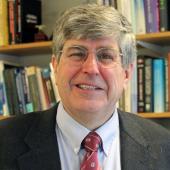
The Executive Board of the Program Committee invites a distinguished member of AIChE to present a comprehensive authoritative review of the chemical engineering science in his or her field of specialization. Selection criteria include:
1. the quality and relevance of the accomplishments of the lecturer in the technical field likely to be the subject of the lecture,
2. the communication skills of the lecturer,
3. the value of the lecture to the meeting attendees and the members of the Institute
To honor Dr. John M. Prausnitz of the University of California, Berkeley's exceptional impact on the profession, society, and generations of chemical engineering students, AIChE’s Board of Directors has agreed to rename the Institute Lecture to the John M. Prausnitz AIChE Institute Lecture. The AIChE Foundation gratefully acknowledges the generosity of John’s closest peers who have made lead gifts to establish an endowment to support the Lecture and ensure John’s name will be recognized in perpetuity.
This is the 70th AIChE Institute Lecture.
Supported by the AIChE Foundation.
Refreshments will be served.
This year's John M. Prausnitz AIChE Institute Lecturer is Klavs F. Jensen, Warren K. Lewis Professor of Chemical Engineering and Professor of Materials Science and Engineering, Massachusetts Institute of Technology who will speaking on "Accelerating Development and Intensification of Chemical Processes".
Accelerating Development and Intensification of Chemical Processes
Klavs F. Jensen, Warren K. Lewis Professor of Chemical Engineering and Professor of Materials Science and Engineering, Massachusetts Institute of Technology
Automated optimization and screening of production candidates along with process intensification offer opportunities for faster development and more efficient production for chemical industries. It is especially the case for those industries with many diverse products, such as specialty chemicals and pharmaceuticals. This presentation starts with opportunities in the early discovery/development phases enabled by automated screening and optimization of chemical reactions in microliter-scale droplets. The technology facilitates optimization across continuous variables (e.g., temperature, concentration, residence time) as well as discrete variables (e.g., catalyst species, base, and solvents) without requiring system depressurization or reconfiguration. Moreover, kinetic models can be extracted for subsequent scaling to process conditions.
As the next step in the development process, a robotically configurable chemical synthesis platform demonstrates automated, optimized multiple step continuous synthesis of molecular targets according to a predetermined recipe. Multistep synthesis occurs at elevated temperatures and pressures to enhance reaction rates, and the resulting residence times are on the order of minutes, in contrast to the multiple hour-long syntheses typically needed for batch processing. Process intensification is exemplified by on-demand synthesis of common pharmaceuticals, e.g., ciprofloxacin, in a plug-and-play, manually reconfigurable, refrigerator-sized manufacturing platform of integrated unit operations. CNC machining and 3D printing are used to realize the miniaturized process equipment described throughout the presentation.
The above advances in laboratory automation and translation to small-scale manufacturing promise to accelerate development, but planning chemical synthesis often requires considerable time and effort that can be reduced through computer-aided organic synthesis. Machine learning opens new approaches to retrosynthetic planning including the underlying challenges in reaction validation and forward reaction prediction. An overall workflow integrates the developed techniques for retrosynthesis and forward prediction to predict an ordered list of reaction paths to a given molecular target from purchasable starting materials via feasible reaction steps. The prospect for integrating these technologies into reaction engineering are discussed and shown through case studies.


